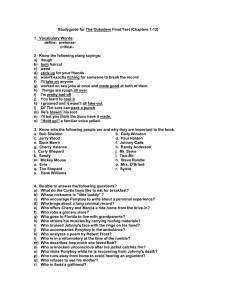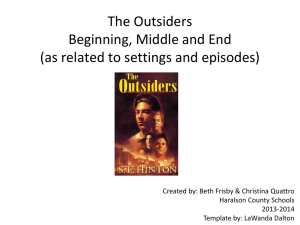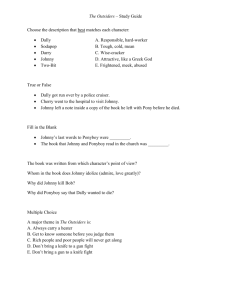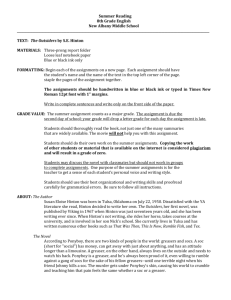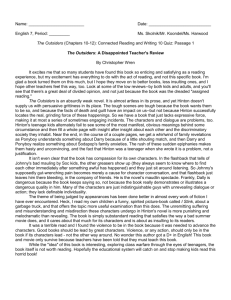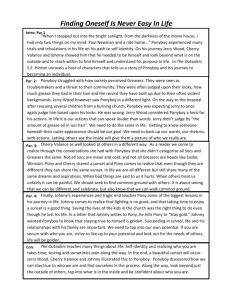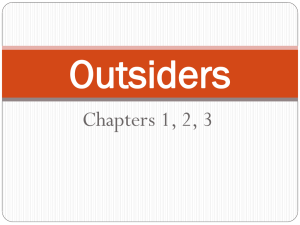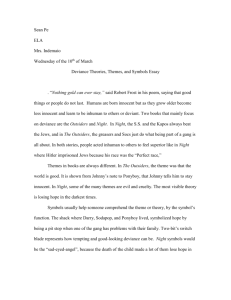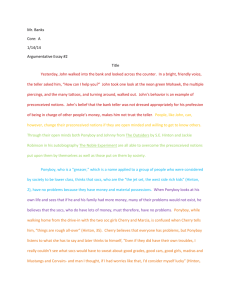File - Mr. Ritt`s 8th Grade Language Arts
advertisement
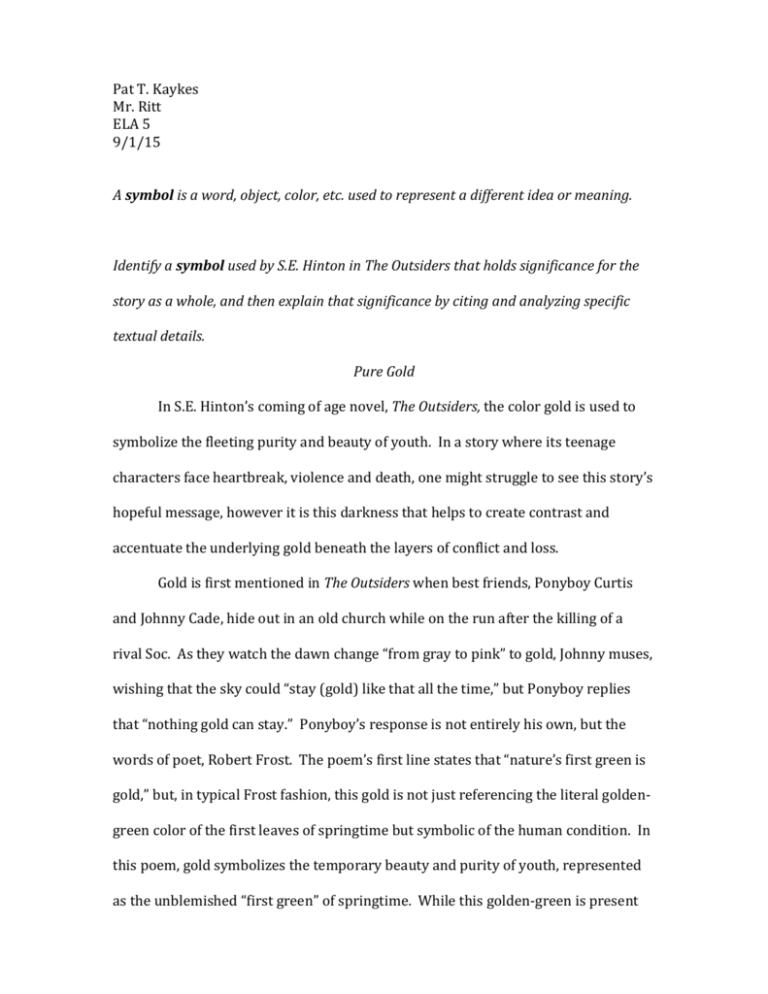
Pat T. Kaykes Mr. Ritt ELA 5 9/1/15 A symbol is a word, object, color, etc. used to represent a different idea or meaning. Identify a symbol used by S.E. Hinton in The Outsiders that holds significance for the story as a whole, and then explain that significance by citing and analyzing specific textual details. Pure Gold In S.E. Hinton’s coming of age novel, The Outsiders, the color gold is used to symbolize the fleeting purity and beauty of youth. In a story where its teenage characters face heartbreak, violence and death, one might struggle to see this story’s hopeful message, however it is this darkness that helps to create contrast and accentuate the underlying gold beneath the layers of conflict and loss. Gold is first mentioned in The Outsiders when best friends, Ponyboy Curtis and Johnny Cade, hide out in an old church while on the run after the killing of a rival Soc. As they watch the dawn change “from gray to pink” to gold, Johnny muses, wishing that the sky could “stay (gold) like that all the time,” but Ponyboy replies that “nothing gold can stay.” Ponyboy’s response is not entirely his own, but the words of poet, Robert Frost. The poem’s first line states that “nature’s first green is gold,” but, in typical Frost fashion, this gold is not just referencing the literal goldengreen color of the first leaves of springtime but symbolic of the human condition. In this poem, gold symbolizes the temporary beauty and purity of youth, represented as the unblemished “first green” of springtime. While this golden-green is present “only so an hour,” so is the innocence and beauty of youth (Hinton 77). Johnny, who has already fallen victim to a world of neglect and violence, recognizes that Ponyboy still has the ability to see this beauty and appreciate its power, which brings a sense of peace to Jobnnny’s troubled soul. As they watch the dawn from the confines of the old church, these two boys, on the run from the law, see a fleeting light that brings their wayward lives new meaning. Johnny eventually dies as a result of a heroic effort to save a number of children from the church that he and Ponyboy inadvertently set ablaze, yet before his death he pens a note to Ponyboy in which he tells him to “stay gold” (Hinton 178). Johnny and his hero, Dallas Winston, lose their lives because of life experiences bereft of this symbolic gold. Pain, loss and struggle define their young lives, but Johnny could still see that Ponyboy’s appreciation of sunsets and the simple beauty in life held a promise that mattered, even to his own doomed soul. While there is an overwhelming darkness to this novel – leather jackets, switchblades, brawls and death – the color gold symbolically shimmers through. In their efforts to keep up with the expectations of others and withstand the hardships placed upon them by the adult world, many of the youths in this novel are unable to recognize or access the value and of this ephemeral time in their own lives. S.E. Hinton’s use of Robert Frost’s symbol sends a message to the reader that while gold may be the “hardest hue to hold,” in the case of Ponyboy Curtis, staying gold may be the only way to make it through the darkness and live to see the dawn (77).
